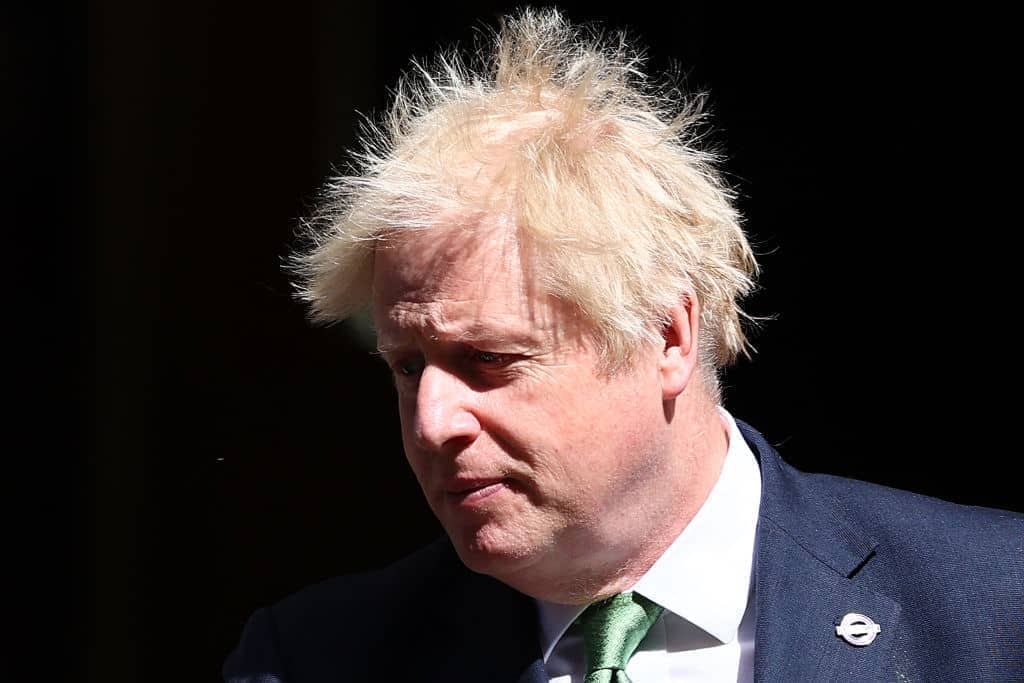Robert Peston, the fiercely well-connected political editor of ITV News and a contributor to Coffee House, reports ‘a sense of injustice and considerable upset’ in Downing Street that ‘the 126 Partygate fines have been levied disproportionately on women and junior officials’. Robert quotes a source who complains that ‘the majority’ of those fined are ‘very junior diary managers’ on salaries of roughly £24,000 and that ‘these fines are really stacking up for them’. It seems there is considerable discontent among female staff fined ‘for events they were at with their male bosses who seem to have got away no problem’, and that ‘lawyering up’ appears to have made the difference.
It’s entirely understandable that civil servants, and particularly those on the lower end of the pay scale, would feel this way. Where they broke the Covid restrictions, they did so in the course of working for the people imposing them. Most confronted by this scenario at work would have deferred to their superiors on the assumption that the authors of the law would hardly be breaking it or having them do so.
For a morality play authored by noble seekers after justice, this feels like a somewhat unjust ending
While we may sympathise with their reactions, the same can’t be said for those who pushed partygate and now profess to be indignant over the supposedly inequitable distribution of the fallout. No one can be shocked that clamouring for police investigations into Downing Street parties has landed a bunch of junior civil servants with fixed penalty notices. Of course it has and was always going to. You can’t demand that the rules apply to everyone then complain when you get your way.
If it was unlawful for the Prime Minister to arrange or attend a workplace gathering during lockdown, then logically it was just as unlawful for every staff member at every level to have done the same. As for the point about female staffers being disproportionately affected, exactly no one who pushed partygate was unaware of the demographics of government employment in relation to sex and seniority. We are very much in the territory of ‘Oh no, the consequences of my own actions!’, except the consequences have accrued, it seems, to low-paid women. For a morality play authored by noble seekers after justice, this feels like a somewhat unjust ending.
I think there’s a strong case for saying Boris Johnson should have resigned over this, but I’m not the best judge in these matters. On any given day, I have about a hundred reasons why Boris should resign rattling around my head. (What gets me is that there are actual conservatives who look at his record in government and don’t feel the same way.) But, my contempt for Boris aside, I don’t think it benefits either the good government of the country to be consumed for months on end by pinot-stuffed suitcases wheeled around SW1 and the leader of the opposition chucking some business at a Durham curry house.
Partygate didn’t spring from nowhere. Said leader of the opposition and the news media chose to make of it what they did. When Nicola Sturgeon was caught ditching her mask to pose for photos with voters in a barber shop during the local election campaign, the opposition and the media got stuck in. A Tory-supporting member of the public rang up the Old Bill. PC Plod had a word in the SNP leader’s ear. And that was that. A one-day story, not a full-run partygate-style production. Doing otherwise would have been silly, shallow and contemptuous of the substantive affairs of state confronting the nation right now.
There’s a lot to be said for the London-based media and how it holds ministers to account in a way the small, under-resourced Scottish media, for example, struggles to do with even the scandal-drenched Scottish government. But where network and the lobby don’t know best is in their addiction to parish-pump drama and their determination to pass it off as national news. And if the Scottish media sometimes lacks the mettle (and in some cases the will) to place the SNP government under relentless scrutiny, the Westminster media sometimes displays too much confidence stiffened by more than a smidgen of political certainty.
Partygate was never about the rules or the law (or the rule of law). It was about getting ministerial scalps and, especially, a prime ministerial scalp. There’s nothing wrong with that in either the opposition or the media. All’s fair in love, war and the politics of confected outrage. As for journalism, we in Britain are not yet as dully idealistic as the Americans, telling ourselves every facet of the muck-racking, noise-making trade is guarding democracy, upholding the constitution or, God help us, part of a ‘profession’ — and we’re all the better for it.
But spare us the hand-wringing. The Boris scalp-hunters either factored in the impact of their crusade on civil servants, in which case they’re being disingenuous now, or they didn’t factor it in, in which case they’re profoundly thick. It’s fair enough to want to ‘get’ Boris. More power to your elbow. I only wish the people most committed to ‘getting’ him weren’t among the least capable or strategic in a long time.







Comments